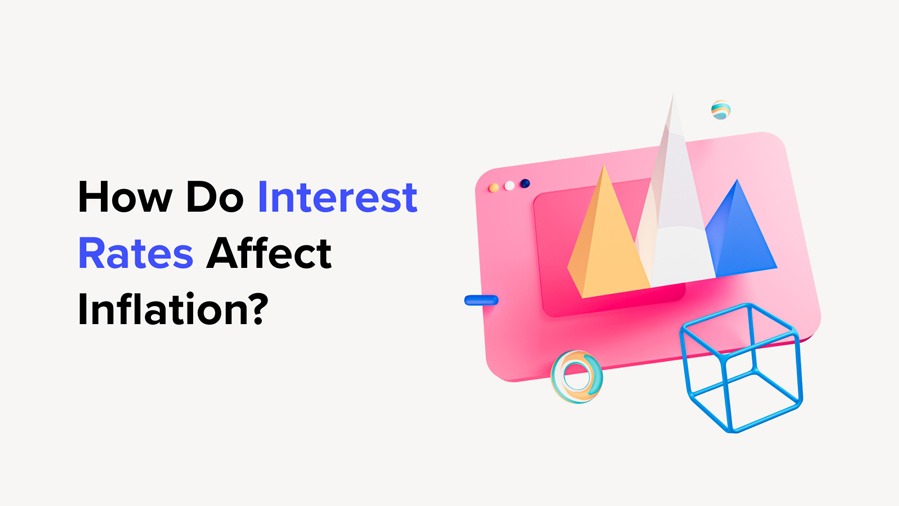

In an effort to curb inflation, the Bank of England has increased interest rates again. The rate is now at 3%.
We know that interest rates can help cool down rising prices, although borrowing is then more expensive. But how do interest rates affect inflation?
The interest rate determines what the cost of borrowing is, or the rewards for saving.
For borrowers, interest is what you are charged when you borrow money. The higher the interest rate, the more you will pay back on your loan.
For savers, the interest rate tells you what you will earn for saving. The higher the interest rate, the more money will be paid into your bank account.
Here are a few other reasons why interest rates matter:
It affects the way people spend money
It determines the cost of borrowing money
It determines how much people earn when they save
When interest rates are low, it can be cheaper to borrow money. This is because the interest rate you will be charged is also lower, so it costs less to borrow.
When interest rates are high, it can be better to save money as it means that you'll also earn more on the money you save.
The base rate refers to the official borrowing rates for UK banks and building societies. This also has an impact on the interest rates that are provided to clients.
The Monetary Policy Committee (MPC) assesses the base rate against the UK inflation target of 2%. When it feels that the inflation rate rises too fast, it may try and reduce the effects by raising the base rate. When the base rate increases, interest rates may also go up.
Similarly, when the inflation rate is too low, the MPC can try to increase it by reducing the base rate.
The base rate gets reviewed about eight times a year, although it doesn't necessarily change. It can even stay the same for years.
The cost of living is currently very high - and it's measured by the inflation rate. The consumer price index, which is seen as a measure of inflation, surpassed 10% in September this year, up from the previous rate of 9.9% the year before.
This, along with other factors, has led to a rise in interest rates.
One of the largest causes is unquestionably energy costs. As economies around the globe resumed operations following the coronavirus lockdowns, gas prices skyrocketed. The conflict in Ukraine has also made things worse.
Inflation refers to the rate at which the cost of goods and services rises.
For instance, in August this year, inflation rose to 10%. This indicates that costs are, on average, 10% higher than they were a year ago. For example, a loaf of bread that cost £1 last year would now cost £1.10.
Due to supply and demand, inflation can increase and decrease. The coronavirus shutdown, for instance, decreased the need for fuel. The UK inflation rate fell in May 2020 as a result of the falling price of oil and cheaper gasoline.
A 2% inflation target maintains inflation at a moderate and stable level, allowing prices to rise roughly at the same rate as wages, which promotes some economic growth and keeps living expenses manageable.
There is a relationship between inflation rates and interest rates, in that:
With lower interest rates, inflation can rise
With higher interest rates, inflation tends to fall
Since the start of the pandemic, interest rates have been at an all-time low, which has led to a sharp rise in inflation. This means the Bank of England may increase interest rates in an effort to decrease the rate of inflation if it continues to rise too quickly.
Prior to December 2021, interest rates had reached an all-time low, which encouraged people to borrow money because it was so affordable. As a result of the dismal interest rates on savings accounts, people had no motivation to save money and opted to spend it instead.
But the cost of borrowing money has gone up as a result of rising interest rates. Consumers and businesses are discouraged from spending or borrowing in this atmosphere.
Due to the possibility of earning interest, people are more motivated to save money than to spend it.
However, a decrease in demand for products and services should, in theory, result in a rise in pricing by constraining cost growth. Shops may even lower the price of their products in an effort to entice customers to purchase them.
Because of this, raising the bank rate acts as a lever to reduce inflation.
As interest rates change, so do mortgage rates. It might affect you, depending on:
The amount you borrowed for your mortgage
The type of mortgage you have
The term length of your mortgage
The interest on a fixed-rate mortgage is fixed for a predetermined amount of time. Generally speaking, during this time, if interest rates move, neither your fixed-rate nor your monthly payments will be impacted.
When your fixed rate expires, though, you can be switched to your lender's regular variable rate if you don't transfer or remortgage (SVR).
A change in the base rate and interest rates is likely to have an effect on your monthly payments whether you have a variable rate mortgage or a tracker mortgage.